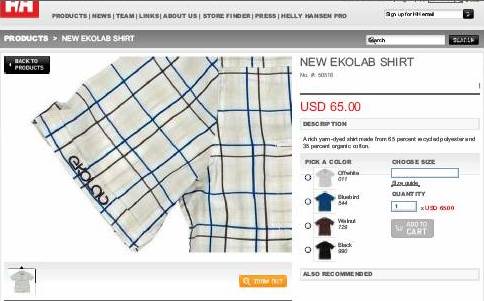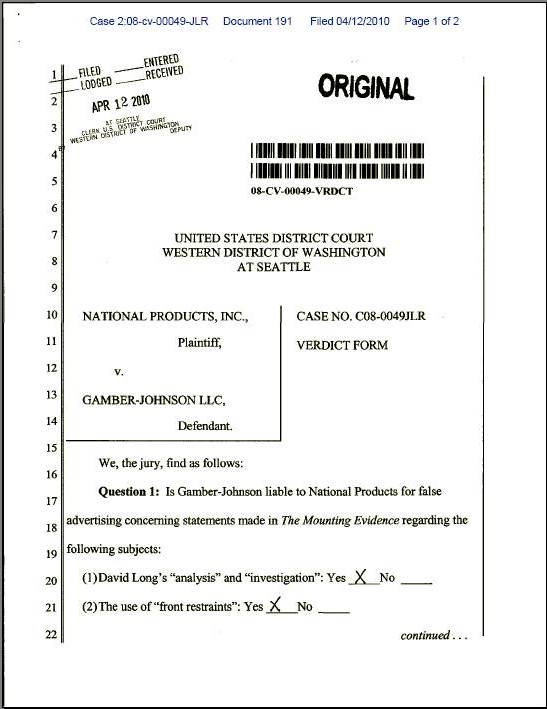Entries by Michael Atkins (1064)
Seven Year Delay, Coupled with Witness' Death, Leads to Dismissal for Laches
In Matsunoki Group, Inc. v. Timberwork Oregon, Inc., plaintiff home builder claimed that defendant home builder infringed its HAIKU HOUSES trademark by displaying a confusingly similar mark on its Web site.
The problem was, plaintiff first asserted those claims in 2001, but filed suit in 2008.
Defendant argued that plaintiff’s claims were barred by laches, which bars an otherwise valid claim when a plaintiff’s unreasonable delay in enforcing its rights unfairly prejudices the defendant.
The Northern District of California found that’s what happened here. In particular, it found a witness’ death and the defendant’s reliance on the continued use of its mark constituted undisputed evidence of unfair prejudice. On April 16, therefore, it dismissed plaintiff’s claims on summary judgment.
“‘Evidentiary prejudice includes such things as lost, stale, or degraded evidence, or witnesses whose memories have faded or who have died,’” the court found. “One of the most important witnesses in this case, Gordon Steen, died in 2004. Matsunoki asserts that Steen authored the intellectual property at issue in this case, an assertion Defendants strongly dispute. Without the opportunity to cross examine Steen, Defendants’ ability to defend themselves will be hamstrung. Steen is clearly the best source for information about the manner in which the intellectual property in question was authored and transferred. If Matsunoki had not delayed in bringing the suit, it could have tried this case before Steen’s death, or his testimony could have at least been preserved in some fashion. Therefore, the Court concludes that Matsunoki’s delay has caused Defendants evidentiary prejudice.
“A defendant may demonstrate expectation prejudice ‘by showing that it took actions or suffered consequences that it would not have, had the plaintiff brought suit promptly.’ After Matsunoki did not respond to Timberwork’s February 27, 2001 letter asserting Timberwork’s rights to the intellectual property, Timberwork continued to use the mark in its catalogs, promotional material and websites and has built its business in reliance on the marks. It would be inequitable to permit Matsunoki to wait seven years before bringing suit and then profit from Defendants’ successes.”
The case cite is Matsunoki Group, Inc. v. Timberwork Oregon, Inc., No. 08-04078, 2010 WL 1532351 (N.D. Cal. April 16, 2010).
Does EKOLAB for Clothing Infringe ECOLAB for Pest Control Services?
 Screen shot featuring one of Helly Hansen’s
Screen shot featuring one of Helly Hansen’s
EKOLAB-branded shirts above; Ecolab’s ECOLAB mark below
 On April 14, Helly Hansen (U.S.) Inc., filed suit in the Western District against Ecolab USA, Inc., seeking a declaration that its use of EKOLAB does not infringe Ecolab’s rights in its ECOLAB registered trademark.
On April 14, Helly Hansen (U.S.) Inc., filed suit in the Western District against Ecolab USA, Inc., seeking a declaration that its use of EKOLAB does not infringe Ecolab’s rights in its ECOLAB registered trademark.
The complaint states Helly Hansen makes outdoor sports apparel. It states Ecolab makes industrial sanitation products, including “insect, rodent and pest extermination and control services,” and “fungicides, bactericides, and germicides.”
The complaint alleges Helly’s mark is adapted from Norwegian words meaning “ecological laboratory.” It says the suit follows a letter Ecolab sent Helly in February saying that Helly’s EKOLAB product line was infringing Ecolab’s trademark and requesting that Helly stop using the mark.
Ecolab has not yet answered the complaint.
The case cite is Helly Hansen (U.S.) Inc. v. Ecolab USA, Inc., No. 10-00632 (W.D. Wash.).
Ninth Circuit Finds Lanham Act No Workaround to FDCA's Bar to Suit
On April 14, the Ninth Circuit considered whether a medical device manufacturer that is not permitted to bring a private right of action to enforce the Food, Drug, and Cosmetic Act (FDCA) may nevertheless maintain a suit under the Lanham Act based on a claim that a competitor violated the FDCA by misrepresenting that its product had received FDA clearance when it had not.
In PhotoMedex, Inc. v. Dean Irwin, the Southern District of California answered in the negative and granted defendant Irwin and RA Medical Systems, Inc., summary judgment on PhotoMedex’s Lanham Act claim.
The Ninth Circuit affirmed, finding that for the most part, PhotoMedex could not do under the Lanham Act what it can’t do under the FDCA.
“Our court has not previously spoken to the question of whether the FDCA limits claims under the Lanham Act,” the court found. “We conclude, in the circumstances of this case, that it does. Because the FDCA forbids private rights of action under that statute, a private action brought under the Lanham Act may not be pursued when, as here, the claim would require litigation of the alleged underlying FDCA violation in a circumstance where the FDA has not itself concluded that there was such a violation.
“To be clear, we do not suggest that the Lanham Act can never support private party claims involving FDA approval or clearance of drugs or medical devices. That is not the case. If, for example, it was clear that an affirmative statement of approval by the FDA was required before a given product could be marketed and that no such FDA approval had been granted, a Lanham Act claim could be pursued for injuries suffered by a competitor as a result of a false assertion that approval had been granted. But this case does not fit that pattern.
“Permitting PhotoMedex’s Lanham Act claim to proceed in the circumstances of this case would intrude on the exclusive government enforcement authority established under the FDCA.”
The case cite is Photomedex, Inc. v. Irwin, __ F.3d __, 2010 WL 1462377, No. 07-56672 (9th Cir. 2010).
Western District Jury Finds False Advertising, Awards $10M in Damages
 Page one of the National Products jury verdict form.
Page one of the National Products jury verdict form.
Page two awards the plaintiff $10 million.
There’s a verdict in the National Products, Inc. v. Gamber-Johnson LLC, false advertising case.
On April 12, the Western District jury found that Gamber-Johnson’s marketing video entitled, “The Mounting Evidence,” discussing competitors’ laptop mounting systems for use in emergency vehicles, constituted false advertising.
STL readers may recall that the video was narrated by a frequent speaker on airbag safety, ambulance driving, and other types of emergency-responder driving techniques who purported to describe his “analysis” and “investigation” into the competing products but actually conducted no analysis or investigation. He just read a script off a teleprompter.
The jury found use of those words constituted deliberate false advertising, as well as the discussion of using “plastic” components versus “steel” and “Grade 5” bolts versus “Grade A” bolts.
It awarded National Products $10 million in damages.
Western District Judge James Robart denied National Products’ motion for judgment as a matter of law. The court ordered the parties to submit supplemental briefing addressing Gamber-Johnson’s motion for judgment as a matter of law, the jury’s award of damages, and National Products’ request for injunctive relief.
The case cite is National Products, Inc. v. Gamber-Johnson LLC, No. 08-0049 (W.D. Wash. April 13, 2010).
Note that STL changed the text from the original publication to clarify that Judge Robart denied National Products’ motion for judgment as a matter of law and that Gamber-Johnson’s motion for judgment of a matter of law is still pending.
The original text stated:
Western District Judge James Robart denied motions for judgment as a matter of law and ordered the parties to submit supplemental briefing addressing the jury’s award of damages, as well as National Products’ request for injunctive relief.
The new text states:
Western District Judge James Robart denied National Products’ motion for judgment as a matter of law. The court ordered the parties to submit supplemental briefing addressing Gamber-Johnson’s motion for judgment as a matter of law, the jury’s award of damages, and National Products’ request for injunctive relief.
We try to be accurate at STL. Sorry for the error!
Western District Reaches Same Result After Remand in Cybersquatting Case
Last week, the Western District re-examined counterclaim plaintiff Vericheck, Inc.’s cybersquatting and trademark infringement claims against counterclaim defendant David Lahoti in light of the Ninth Circuit’s review in Lahoti v. Vericheck, 586 F.3d. 1190 (9th Cir. 2009). Vericheck’s claims stem from Mr. Lahoti’s registration of the vericheck.com domain name. (For background, see posts on the Ninth Circuit decision and bench trial findings.)
STL readers may recall the Ninth Circuit vacated and remanded the district court’s finding that Vericheck’s VERICHECK mark is distinctive. In that decision, the Ninth Circuit separately affirmed the district court’s finding that Mr. Lahoti had registered vericheck.com in bad faith.
Given the Ninth Circuit’s direction, on April 9, the Western District entered Amended Findings of Fact and Conclusions of Law that reached the same conclusion it reached the first time. The court again found VERICHECK to be distinctive, though this time it clarified that it analyzed the mark as a whole in the context in which the average consumer would encounter it. After doing so, it again determined the mark is suggestive.
The court also again awarded Vericheck $100,000, the maximum amount of statutory damages under the Anticybersquatting Consumer Protection Act. It awarded Vericheck its attorney’s fees and costs in the amount of $78,109.95.
The case cite is Lahoti v. Vericheck, Inc., No. 06-1132 (W.D. Wash. April 9, 2010) (Robart, J.).